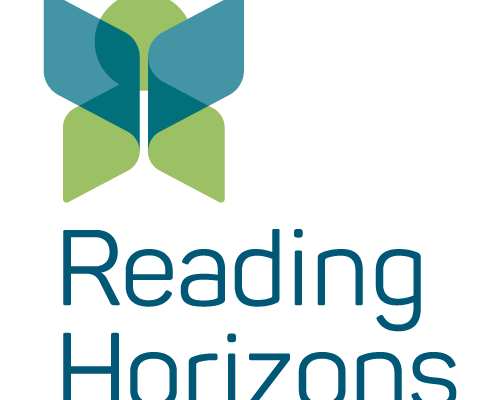4 Keys to Motivating Reluctant High School Readers

By the time many students reach high school, their motivation to read is at its lowest. These simple tips will increase student interest in reading both in and out of school.
By Dr. Gene Kerns
As students and teachers return to the classroom for in-person instruction this fall—many for the first time since the pandemic began—educators are faced with an array of new challenges, from learning loss to students who are no longer accustomed to the routines of the classroom and even have lingering trauma from a harrowing year. Nevertheless, the perennial challenges, such as encouraging reluctant high school students to read more, remain.
There is no magic method to get students of any age to read, but a handful of achievable best practices will encourage high school students to read without sacrificing a lot of time in the crucial school year ahead.
Student Age and Declining Reading Motivation
It’s likely no surprise to most educators that high school students read less than younger students, but the paucity of their reading, particularly among the most reluctant readers, is shocking.
For his book Raising Kids Who Read, Daniel Willingham polled teachers and parents of high school students and found they were hoping their pupils read approximately 75 minutes a day. When he looked up the actual numbers from the US Bureau of Labor Statistics’ American Time Use Survey, he found that “the actual time American teenagers spend reading is 6 minutes” per day, going on to note the stark reality obscured by the average is that “most kids don’t read at all, and a few read quite a lot.”
Unsurprisingly, this leads to a virtuous cycle for the top readers, who become more skilled as they practice more and are able to tackle ever more challenging texts, while those who need reading practice the most get the least practice and lag ever further behind their peers.
Willingham suggests that for many of these students, the challenge is simply a lack of pleasure in reading, noting that “for many students, ‘reading’ means books written by dead people who have nothing to say that would be relevant to your life. Nevertheless, you are expected to pore over their words, study them, summarize them, analyze them for hidden meaning, and then write a five-page paper about them.”
Fortunately, a simple cause of the problem suggests an equally straightforward solution. According to Willingham, the best way to help students develop a positive attitude toward reading is to provide positive reading experiences. “This phenomenon is no more complicated than understanding why someone has a positive attitude towards eggplant,” Willingham writes. “You taste it and you like it.”
Below are 4 strategies to employ to increase student interest and engagement in reading:
1. Help Students Set Achievable Reading Goals
According to Willingham, the gentlest pressure that is likely to encourage a reluctant student to read more is to set aside some class time every day for silent pleasure reading. He suggests that scheduling just 20 minutes a day is enough, and our data suggest that for any amount of time to produce an optimal effect, students must set reading goals.
The first kind of goal to help students set is reading time. The 20 minutes of pleasure reading in class is a good start, but for struggling readers, a goal of 30 minutes each day or even as much as 60 minutes may be appropriate.
The second kind of goal for students relates to reading material. Students who read a diverse range of texts of varying lengths tend to have higher reading achievement, so it’s important to encourage struggling readers to tackle an array of books, along with shorter media such as magazine features, newspaper articles, or graphic novels.
The third and final kind of goal to help students determine for themselves is reading effort. It may seem difficult to track effort, but it is tied to literal comprehension. High literal comprehension is a strong indication that students are putting in effort, while low literal comprehension suggests they aren’t.
2. Distinguish Between Academic and Pleasure Reading
Academic reading can offer enjoyment to some, but when crafting academic reading assignments, Willingham notes that “pleasure is not the litmus test.” As a result, it’s important to help students delineate between academic and pleasure reading. Here, Willingham gets right to the point, noting his concern “that kids might confuse academic reading with reading for pleasure. If they do, they’ll come to think of reading as work, plain and simple.”
Unlike the various litmus tests we consider for academic reading (Is this text challenging enough? Does it align to our curriculum? What open-ended questions can I pose? What evidence-based writing could students do in response to their reading?), pleasure reading is for just that: pleasure. This may seem like a simple matter, but for struggling readers, many of whom may never have found pleasure in reading, dedicating time and providing a comprehensive choice of texts for pleasure reading can, for the first time, begin an association between pleasure and reading.
3. Manage Reading Practice—But Not Too Rigidly
If we want students to enjoy reading, we have to give them the opportunity to pick material they think they’ll like. Reading more challenging texts generally leads to more growth, and reading widely across genres and topics is also beneficial, but with struggling readers, the first hurdle is simply getting them to read. Pushing students too hard is an easy way to drain the joy from reading.
Teachers are often concerned when students choose books below their reading level, but reading something is clearly better than reading nothing. Sometimes we need to push students less to give them the room to find success and joy in reading first.
4. Use All Available Resources
In 1996, when I was still teaching high school, a colleague and I won a grant that provided a massive infusion of books for our school library. That haul proved to be a critical motivator for our students. If your collection is limited or old, students are less likely to engage with it. Something as simple as a new cover can generate renewed interest in a classic title. Taking cues from bookstores to display your classroom or library collection more invitingly can help get more noses in books too.
Digital reading platforms can also be a massive reservoir of motivation, providing students with thousands of books and articles they can begin reading within a few clicks—no trip to the library or fighting over popular titles required. According to Willingham, affordable e-readers offering this kind of instant access make possible an environment in which books are not “just available, but virtually falling into children’s laps.”
Reading practice programs are another great resource that can help teachers and students set reading goals, make it easier for students to find books they’ll love with just the right amount of challenge, and allow teachers to keep an eye on reading practice unobtrusively through quizzes and other tools.
Dr. Gene Kerns (@GeneKerns) is vice president and chief academic officer at Renaissance. He is a third-generation educator and has served as a public-school teacher, adjunct faculty member, professional development trainer, district supervisor of academic services, and academic advisor at one of the nation’s top edtech companies. He has trained and consulted internationally and is the co-author of three books. He can be reached at [email protected].






